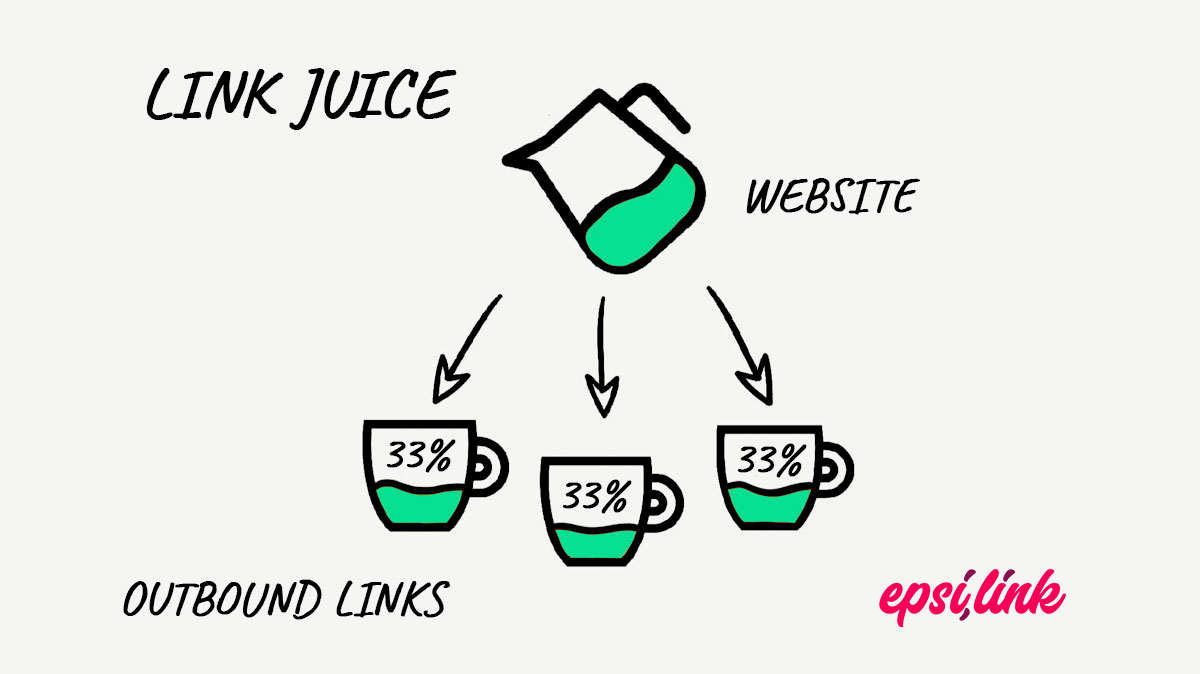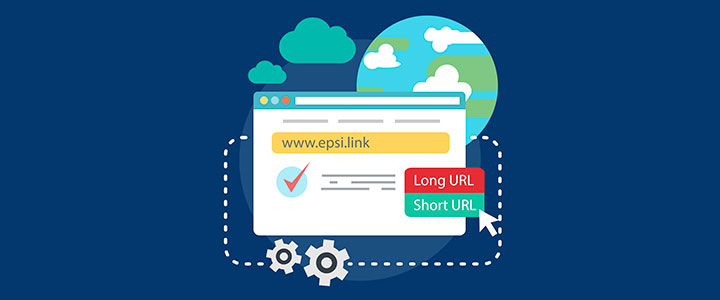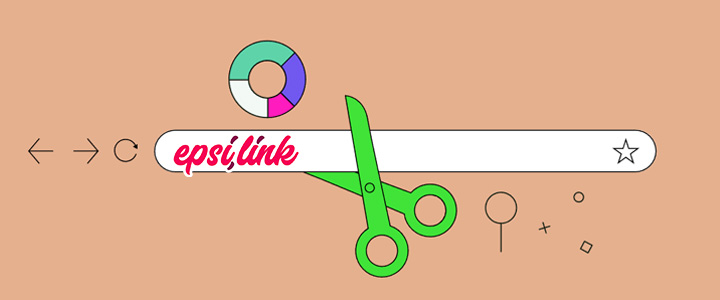
If SEO is important to you, you should analyze the site backlinks and use high-quality backlinks on the site. By observing this issue, you can help optimize the site and increase its SEO rank of the site. In this article, we will talk about backlinks and their effect on website SEO.
What is a backlink?
Backlinks are one of the most widely used words in the world of site optimization for search engines or SEO. The concept of backlinks is now a challenging topic for many webmasters. We hope that in this article we can correctly state what backlinks are and what positive or negative impact they can have on a site's ranking in search engines.
Backlinks are inbound links to your website from other websites. When a web page puts the URL of your webpage on its site in such a way that clicking on that URL leads to your web page, that URL is considered a backlink. In the past, backlinks were an extremely important concept, and can be said it was the most important criterion for evaluating the ranking of websites in search engines, but today, with the change of search engine algorithms, especially Google, this importance has decreased a little. However, still, good backlinks can have a significant impact on increasing the website ranking and improving off-page SEO.
A backlink, also known as an "inbound link" or "incoming link," is a hyperlink that points from one website to another. In other words, it is a link that another website uses to refer to your website or one of its pages. Backlinks are important in search engine optimization (SEO) because they can help search engines understand the relevance and authority of a website. When search engines see a high number of quality backlinks pointing to a website, they interpret this as a signal that the site is trustworthy and valuable, and as a result, may rank the site higher in search results. However, it's important to note that not all backlinks are created equal; search engines also evaluate the quality and relevance of the linking website and the anchor text used in the link.
Some common phrases you need to know about backlinks
Link Juice
When a web page links to your website's internal pages or homepage, this backlink is called Link Juice. Link Juice is effective in improving the ranking of web pages as well as increasing Domain Authority. If you want to link to a page on your site but it does not help increase the ranking of that page, you must use the nofollow tag.

Link juice is a term used in search engine optimization (SEO) to refer to the value or equity passed from one website to another through hyperlinks. When a website links to another website, it is essentially passing some of its "authority" to the linked site. The more authoritative the linking website, the more link juice it can pass to the linked site. This link juice can help improve the search engine rankings of the linked site, as search engines see these links as a sign of trust and quality.
It's important to note that not all links pass the same amount of link juice. Links from authoritative and relevant websites are more valuable than low-quality or irrelevant ones. Additionally, links with relevant anchor text (the visible, clickable text in a hyperlink) can also impact the amount of link juice passed. Overall, link juice is an important factor in SEO and can contribute significantly to a website's search engine rankings.
Nofollow Links
As mentioned, when a link from a web page with a nofollow tag is placed on another page, this backlink is not considered juice. nofollow links do not affect increasing the ranking of linked pages and are used for reference only. As a webmaster, if you want to link to sites that you do not trust, you need to use nofollow links. Among the nofollow links, we can mention the URL links of the websites in the comments section.
A nofollow link is a type of hyperlink that tells search engines not to follow the link and not to pass any link juice or authority to the linked website. It is created by adding the "rel=nofollow" HTML tag to the hyperlink code.
The purpose of nofollow links is to discourage spammers from using comments, forum posts, or other user-generated content to manipulate search engine rankings by building lots of low-quality links to their sites. When a website owner adds a nofollow tag to a link, they are essentially telling search engines that they do not endorse the linked content and do not want to pass any link juice to it.
It's important to note that nofollow links can still drive traffic to a website, as users can still click on them and visit the linked site. However, they are less valuable in terms of SEO, as they do not contribute to a site's link profile or search engine rankings.
Do-follow Links
By default, all links that do not have the nofollow tag are considered to follow links and are considered juice links.
A do-follow link is a type of hyperlink that allows search engines to follow the link and pass link juice or authority to the linked website. Unlike nofollow links, do-follow links do not have the "rel=nofollow" HTML tag in the hyperlink code, which means that they are counted as a vote of confidence from the linking website.
Do-follow links are valuable for SEO because they can help improve a website's search engine rankings by signaling to search engines that the linked content is high-quality and relevant. When a website has many do-follow links from authoritative and relevant sources, search engines are more likely to consider it a trustworthy and valuable resource, which can lead to higher rankings in search results.
It's important to note that do-follow links should be earned naturally and ethically, rather than through spammy tactics like link buying or link exchanges. Search engines are constantly updating their algorithms to identify and penalize websites that engage in manipulative linking practices, so it's important to focus on creating high-quality content and earning links from reputable sources.
Linking Root Domain
This phrase refers to the number of backlinks that are referred to your website from a single URL. If a website links to your website even ten times, all of them will be considered as one backlink in terms of juice and their number will not affect increasing SEO.
A linking root domain refers to the number of unique root domains that link to a particular website, rather than the total number of links. In other words, if multiple pages from the same domain link to a website, they will only count as one linking root domain.
Linking root domains is an important factor in search engine optimization (SEO) because they are used by search engines to evaluate the authority and relevance of a website. When a website has many linking root domains from authoritative and relevant sources, search engines are more likely to consider it a trustworthy and valuable resource, which can lead to higher rankings in search results.
It's important to note that the quality of the linking root domains is more important than the quantity. Links from high-quality, authoritative, and relevant sources are more valuable than links from low-quality or irrelevant sources. Additionally, having too many links from the same domain can be seen as spammy and may not provide as much value as links from a variety of different sources.
Low-Quality Links
Low-quality links are those links that are given to your site from spam sites and sites that have a lot of outbound links. The negative impact of these backlinks is greater than their positive effects and it is necessary to avoid these types of sites.
Low-quality links are hyperlinks from websites that have low domain authority, are not relevant to the linked content, or have other characteristics that can be seen as spammy or manipulative. Examples of low-quality links include:
- Links from link farms or spammy directories
- Paid links or link exchanges
- Links from irrelevant or low-quality websites
- Links from blog comments, forum posts, or other user-generated content that is not moderated or regulated
- Links with over-optimized anchor text or other manipulative linking practices
Having too many low-quality links pointing to a website can be harmful to its search engine rankings, as search engines may view these links as attempts to manipulate their algorithms. In some cases, websites with too many low-quality links may be penalized or even removed from search results entirely.
To avoid low-quality links, it's important to focus on creating high-quality content that earns natural links from authoritative and relevant sources. This can include creating shareable content, building relationships with other websites in your industry, and participating in online communities and forums to establish yourself as a trusted and knowledgeable resource.
Internal Links
Links that point from one page of a website to another page of the same website are called internal links. Although this type of link is no more effective than external links to your website, if used properly, they can improve the SEO of your keywords.
Internal links are hyperlinks on a website that link to other pages within the same website. These links help website visitors navigate between different pages and sections of the site, and can also help search engines understand the structure and hierarchy of the website's content.
Internal links are important for SEO because they can help distribute link juice or authority throughout the site. When a page on a website has many internal links pointing to it, it signals to search engines that the page is important and valuable. Additionally, internal links can help search engines crawl and index a website more efficiently, as they can follow links from one page to another and discover new content.
When creating internal links, it's important to use descriptive and relevant anchor text (the visible, clickable text in a hyperlink) that accurately reflects the content of the linked page. Additionally, it's important to ensure that the website's structure and navigation are logical and easy to follow, with a clear hierarchy of pages and sections. This can help both website visitors and search engines understand the relationship between different pages and content on the site.
Anchor text
The text that is considered the link text is called the Anchor text. This text has a great impact on improving the ranking of keywords in search engines.
Anchor text is the visible, clickable text in a hyperlink that is used to link one web page to another. It is often underlined and displayed in a different color from the surrounding text, to indicate that it is a hyperlink.
Anchor text is important for SEO because it provides context and signals to search engines about the linked page's content. When a web page has many links pointing to it with relevant and descriptive anchor text, search engines are more likely to consider it a high-quality and authoritative source of information on that topic.
However, it's important to use anchor text ethically and avoid over-optimizing it with exact-match keywords, as this can be seen as a manipulative SEO tactic. Instead, it's recommended to use descriptive, natural-sounding anchor text that accurately reflects the content of the linked page. This can include using the page's title or a brief description of its content as the anchor text.
It's also important to vary the anchor text used in links pointing to a web page, to avoid creating a pattern that could be seen as manipulative or unnatural. This can include using a mix of exact match keywords, partial match keywords, branded terms, and generic phrases as anchor text.

The Advantage of Backlinks in Improving Website SEO
Before we talk about the impact of backlinks on SEO, it is important to know that the importance of backlinks has changed in recent years. There was a time when even low-quality backlinks were effective in improving the page rank of the site, but today with the change in Google's algorithm and the use of the intelligent Penguin algorithm, it is very important that your backlinks are from a high-quality site that has a good ranking in search engines. Also, getting backlinks from sites with content related to your website content will help a lot to increase your website ranking in search engines.
In general, the purpose of backlinks should be to direct the audience from another site to your site, and simply placing backlinks on other sites does not have much effect in itself.
Let's review why creating backlinks to your website is so important.
Backlinks improve the organized ranking
Backlinks help you to have a better position in search engines and will increase site traffic. If a link with the right Anchor text on another site links to content from your website, that content will quickly increase in search engine rankings. It is better to focus on improving the ranking of keywords and internal pages of the website than the home page.
Backlinks can be a significant factor in improving a website's search engine ranking, as they signal to search engines that other websites consider the linked content to be valuable and authoritative.
When a website has many high-quality backlinks from authoritative and relevant sources, search engines are more likely to consider it a trustworthy and valuable resource, which can lead to higher rankings in search results. Additionally, backlinks can help distribute link juice or authority throughout a website, which can help improve the rankings of other pages and content on the site.
However, it's important to note that backlinks alone are not enough to improve a website's ranking. Other factors, such as the quality and relevance of the content, the website's structure and organization, and user experience, also play important roles in SEO.
Furthermore, it's important to focus on earning backlinks naturally and ethically, rather than through spammy tactics like link buying or link exchanges. Search engines are constantly updating their algorithms to identify and penalize websites that engage in manipulative linking practices, so it's important to focus on creating high-quality content and earning links from reputable sources.
Backlinks accelerate indexing your website pages in search engines
Backlinks increase search speed and search engine crawlers' arrival at your site. Therefore, to speed up the indexing of your site content, it is highly recommended to use appropriate backlinks.
How to get backlinks?
Now that you are familiar with the meaning of "backlinks" and their role in improving the SEO of the site, it is better to get acquainted with some simple solutions to add the right backlinks for your website.
The important point in adding backlinks to improve the website's ranking is that the number of backlinks is not very important to its quality, and the quality of the received backlinks shows its effect in improving the SEO of the website. So, if you are going to buy backlinks (which is not recommended at all, because recently Google Penguin algorithm detects purchased backlinks and considers them as a negative factor in website SEO) if you don’t have information about the quality of a backlink, do not take risks and do not buy.
How to get high-quality backlinks?

Write quality articles
If you want your site link to be on quality sites, of course, the content creation of your website must also have the necessary qualities. Writing practical and quality articles (like this article: D) attracts the attention of other website owners to your website and increases the likelihood of your site content linking to their website. Keep in mind that quality articles are researched and are not copied from other sites.
Start commenting
Commenting means your participating in websites and social networks. Chat forums that include Do-follow links in their posts are a great place to get quality backlinks. Also, social networks, which are an important part of the Internet today, are highly recommended for backlinks due to their wide audience.
Finally, the mentioned cases are only a part of the important issues related to the concept of backlinks. Of course, everyone's personal experiences are different, and this article will not cover them all. However, it is hoped that the content mentioned will be as useful as possible and positively impact the use of SEO services and improve your site's ranking in search engines.



